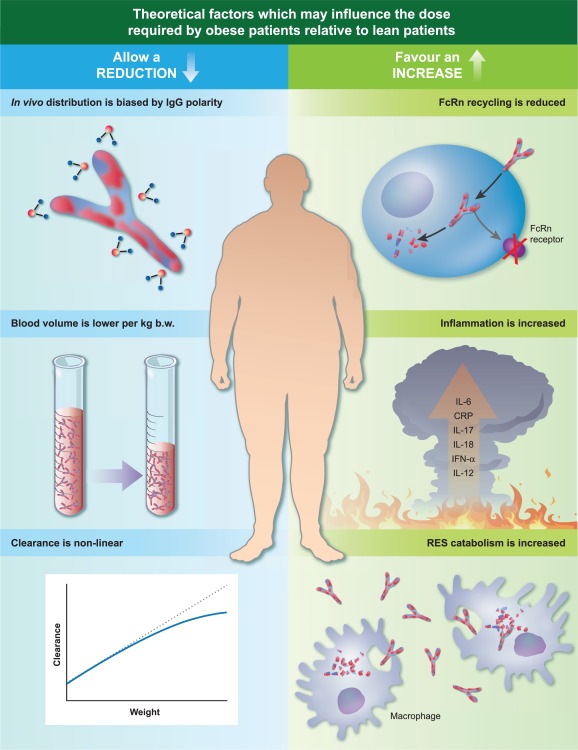Figure 1.

Theoretical factors which may affect immunoglobulin (Ig) pharmacokinetics in obese patients. IgG is a polar molecule, and therefore a preference for the aqueous spaces (e.g. blood) would be accentuated in obese patients. This preference may be additionally pronounced because obese patients have a proportionally (per kg body weight (b.w.)) lower blood volume compared to lean patients. Furthermore, protein drug clearance is proportionally lower as weight increases, which may contribute to an extended half‐life for Ig. The chronic inflammatory state seen in obese patients may necessitate a higher dose to control symptoms, as would an increase in Ig catabolism and reduced recycling due to a shorter t 1/2.
